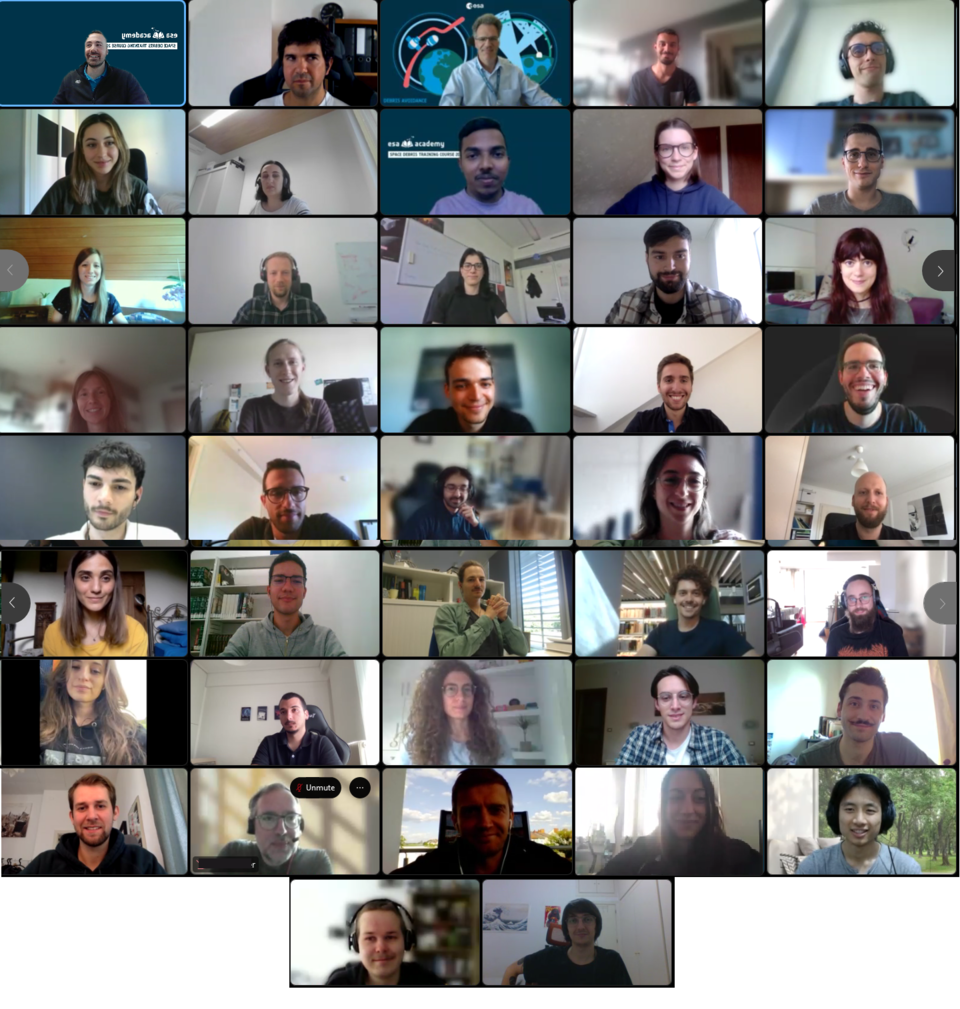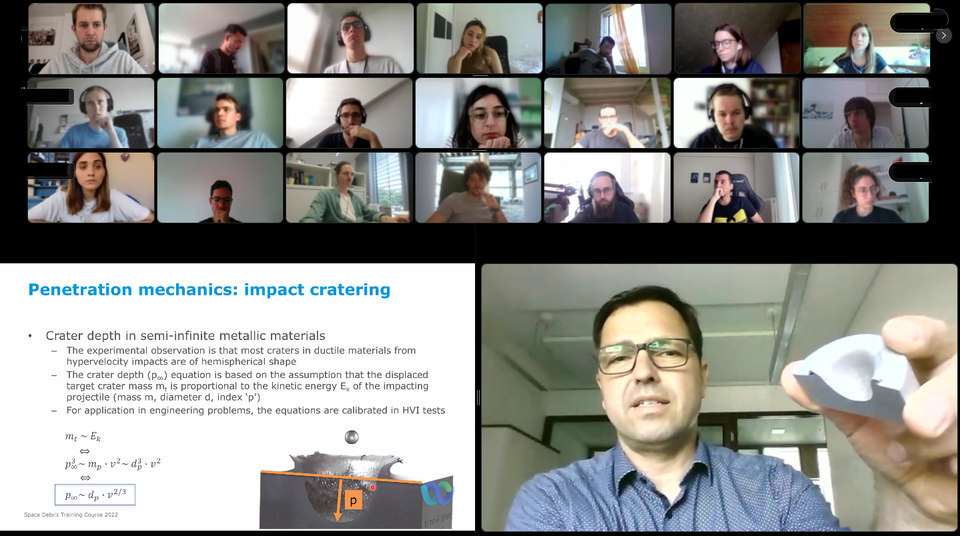ESA Academy’s Online Space Debris Training Course 2022 immerses University students in the challenges of space debris
In brief
Space debris is a serious problem, impacting our ability to operate satellites in Earth orbit and send spacecraft beyond. To help prepare the next generation of space scientists and engineers to tackle this issue, ESA’s Education and Space Debris Offices teamed up again to deliver the Online Space Debris Training Course 2022. Held from 16 to 25 May, ESA and external experts offered their knowledge to 31 university students from nine different ESA Member States.
In-depth
The goal of this training course was to introduce attending students to the concept of space debris, why it is a problem, and what can be done about it. "The Online Space Debris Training Course is a full immersion activity in space debris,” explained a Spanish student from Cranfield University, “giving you the opportunity to explore a wide variety of topics involving space debris from the perspective of real ESA scientists and engineers. Understanding the impact of space debris and the current guidelines and regulations around it is key when designing any space mission. I am sure that this course will prove very useful to my career in the Space Sector."
First on the agenda was learning about the basics of space debris, space debris environment, and mitigation principles. The forces acting on an object in space were discussed, followed by the space debris environment and the dangers it contains. Then it was onto legal and regulatory considerations, which gave students a new perspective.

Later sessions help students dive into mitigation, including technologies for passivation and deorbiting. A lecture on protection and shielding had students enthralled, while a lesson about Re-entry - from the aerothermodynamics ruling the re-entry of an object in the atmosphere to the simulation of this for various satellites – was a real eye-opener. The final lecture was themed on the future of the space debris problem, with an overview of Active Debris Removal and Design for Demise, which sees spacecraft specifically designed for optimal destruction during re-entry.
A German student from the University of Stuttgart mentioned: ‘’The Online Space Debris Training Course 2022was a great chance to meet like-minded people with the same interest in keeping space clean for future generations. Especially interesting were the different approaches to solving the problems of space debris.”
Technical lectures were complemented by group project sessions. Using the ESA MASTER and DRAMA software developed and routinely used by the Space Debris Office, students investigated topics including disposal strategies, collision avoidance, and removal of satellites from orbit. The experts supported the students in discussing their findings, and were impressed by the dedication shown by each group.

At the end of the training course, the students were evaluated through an online test. Those that receive a passing grade will be awarded a certificate of participation and course transcript allowing them to request ECTS credit(s) from their universities.
‘’This was an extremely valuable and enjoyable experience at the same time,” said an Italian student from Politecnico di Bari. “The knowledge and insights provided by various experts are hard to find in books, and the hands-on group projects were a unique learning tool.”
To find more information about upcoming ESA Academy training opportunities, please check: https://www.esa.int/Education/ESA_Academy/TLP_Future_opportunities
Contact: tlp@esa.int


